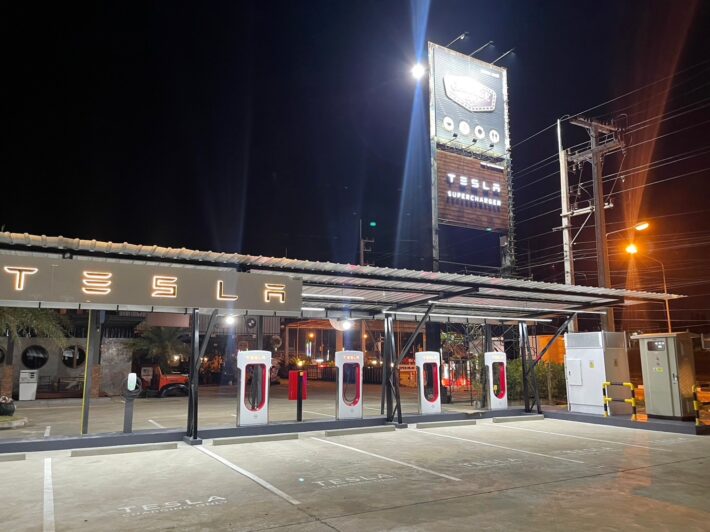Tesla is set to inaugurate its first Supercharger in Thailand next month, marking a significant milestone that aligns with Elon Musk’s vision of seamless electric vehicle (EV) driving experiences. This move is anticipated to be a game-changer, offering the convenience akin to traditional gas station fill-ups, a core aspect of Musk’s blueprint for Tesla’s driving experience.
Tesla’s Supercharger network is a game changer for electric vehicles, providing long distance travel that has a level of convenience equivalent to gasoline cars for all practical purposes.
Elon Musk [Cite : Engadget]
Tesla Thailand is owned by Elon Musk or Central?
Tesla’s journey in Thailand has been marred by criticism, with the company previously establishing all 13 of its Superchargers within the confines of department stores, predominantly those owned by the Central Group. This strategy has raised eyebrows and questions about the true ownership of Tesla Thailand and whether it is inadvertently entwined with the Central Group’s interests.
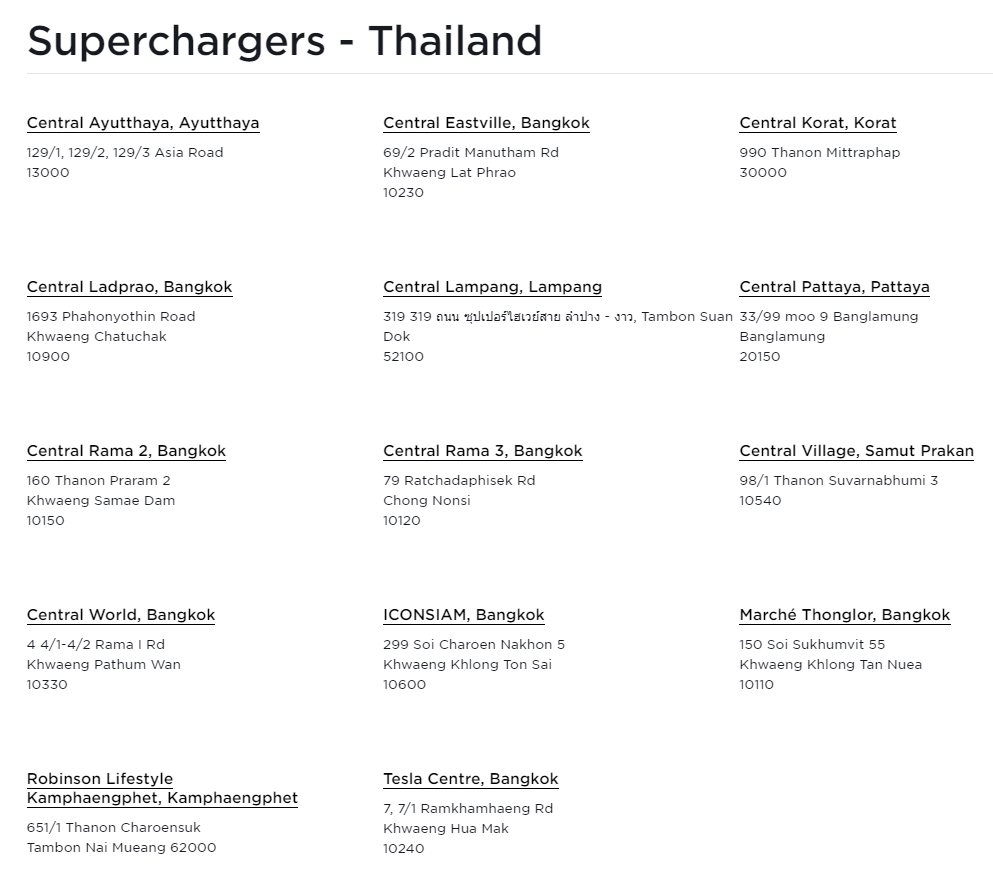
The locations of Tesla’s Superchargers in Thailand are predominantly urban-centric, with a staggering 9 out of 14, or approximately 64%, situated in properties associated with the Central Group. The most recent addition at Central Eastville only adds to the perplexing pattern, sparking speculation about the ownership and strategic direction of Tesla Thailand.
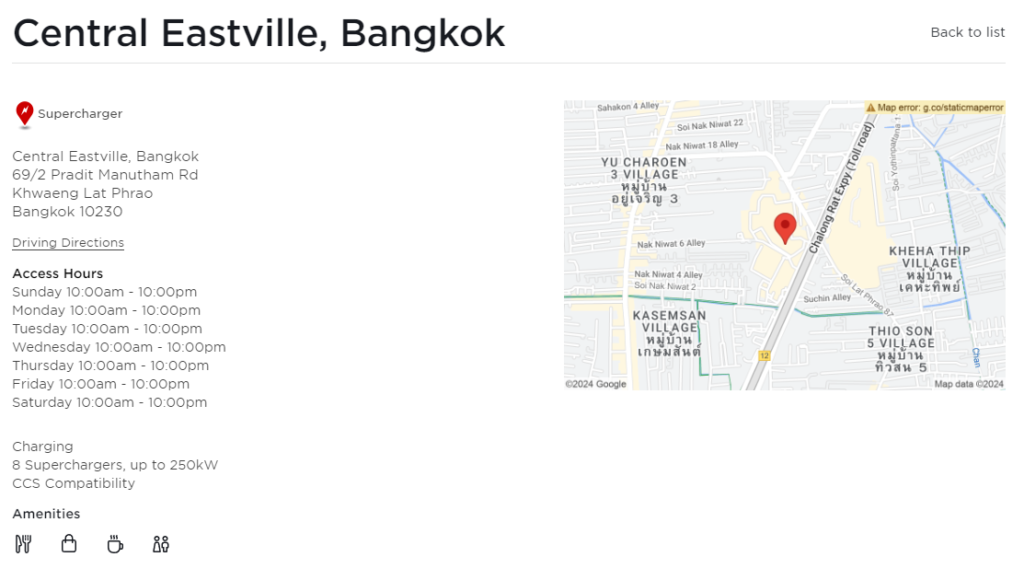
Writer’s note : While I ,the author of this article, harbors no negative feelings towards the Central Group, the placement of Tesla Superchargers predominantly within department stores in Thailand—9 stations within this group and an additional 3 in other department stores—raises questions, especially when contrasted with Tesla’s global strategy. Globally, Tesla has focused on installing Superchargers in locations that support long-distance travel, such as along major highways and rest stops, accessible 24/7 in the United States and Europe, to ensure drivers can recharge at any time. This approach aligns with Tesla’s mission to promote electric vehicle adoption by making long-distance travel both convenient and reliable. However, the concentration of 13 out of 14 Supercharger stations in Thai department stores deviates from this pattern, limiting the utility of Tesla vehicles for long-distance travel in Thailand and prompting inquiries into how this strategy aligns with Tesla’s broader vision of seamless electric vehicle travel.
Tesla’s strategic placement of its Superchargers within urban centers, particularly in association with properties owned by the Central Group, has indeed raised questions regarding the company’s approach to expanding its charging network in Thailand. With 9 out of the 14 Superchargers located in Central Group properties, there’s a clear pattern that suggests a preference for urban, rather than highway or rural, installations.
This decision aligns with the convenience of urban EV owners but poses challenges for those looking to undertake longer road trips across Thailand.
Not open 24 hours
The congestion in and out of department store parking lots, which serve not only Tesla owners but also a broad spectrum of shoppers and visitors, further complicates the situation. The traffic congestion can deter Tesla owners from using Superchargers, especially during peak hours when the demand for parking spaces is high. This situation is exacerbated by the fact that most department stores in Thailand do not operate 24 hours, typically closing at 10 p.m. This operational schedule restricts the availability of Superchargers for Tesla owners, particularly affecting those who may need to charge their vehicles during late hours or those embarking on road trips that extend beyond the stores’ operating hours.
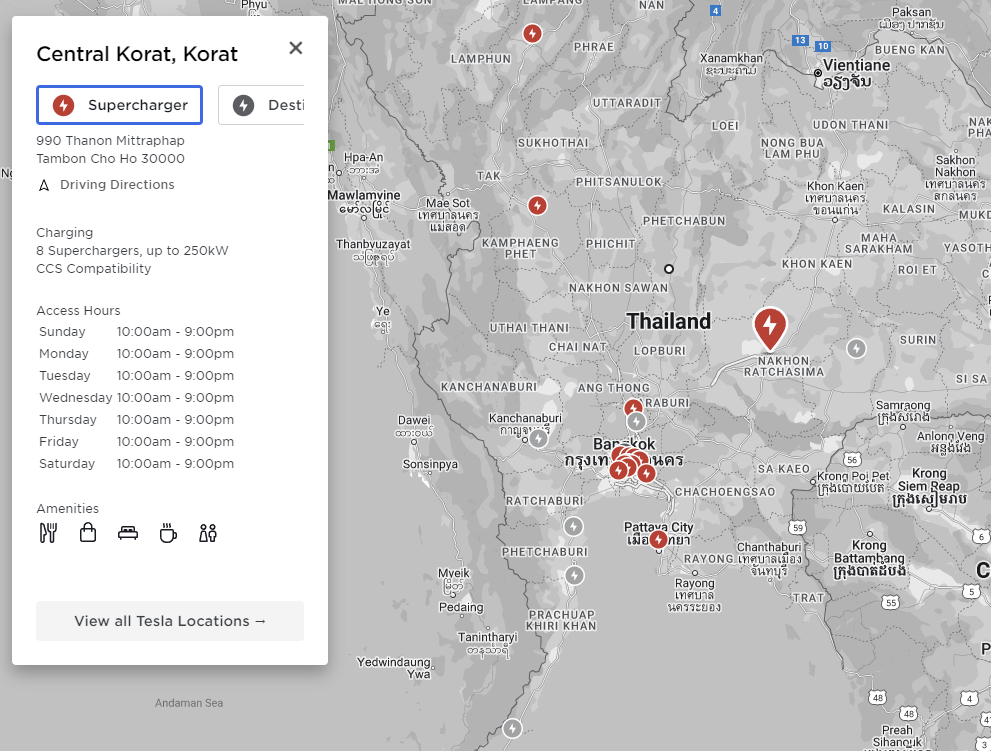
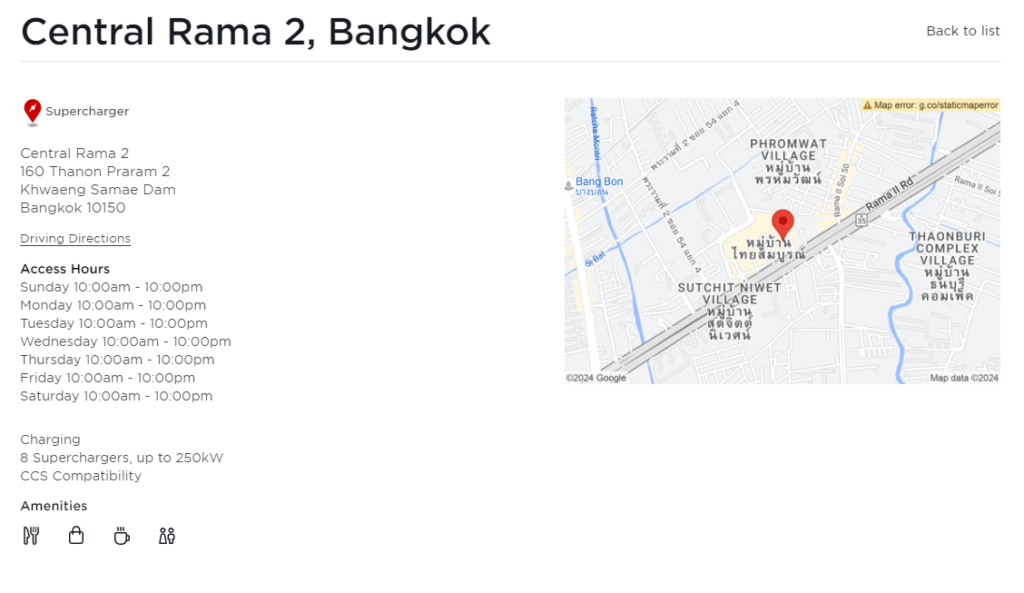
The urban-centric placement of Superchargers, while beneficial for daily urban commutes and short trips within the city, does not fully support the vision of enabling long-distance travel with ease. Tesla’s Supercharger network is designed to facilitate quick and convenient charging, allowing Tesla owners to travel long distances with minimal stops. However, the current distribution and accessibility issues in Thailand challenge this vision, potentially limiting the freedom of Tesla owners to travel extensively and spontaneously across the country.
While the initial focus on urban Supercharger locations may have presented challenges for long-distance EV travel in Thailand, Tesla is now steering its course towards a more inclusive charging network. This positive shift is exemplified by the installation of a new Supercharger in Chumphon, a strategic move that bridges the gap between urban convenience and the freedom of open-road travel.
First True Tesla Supercharger has arrived
Finally, Tesla has taken a commendable step towards expanding its Supercharger network in Thailand by installing a new Supercharger outside of the typical department store setting, and adjacent to the highway
This strategic move, with the installation in Chumphon, paves the way for Tesla owners to travel freely from the capital city of Bangkok to the southern regions, including Surat Thani, Krabi, Phuket, and Trang. This expansion is a significant improvement for the Tesla experience in Thailand, bringing it on par with the convenience enjoyed by Tesla users around the world.
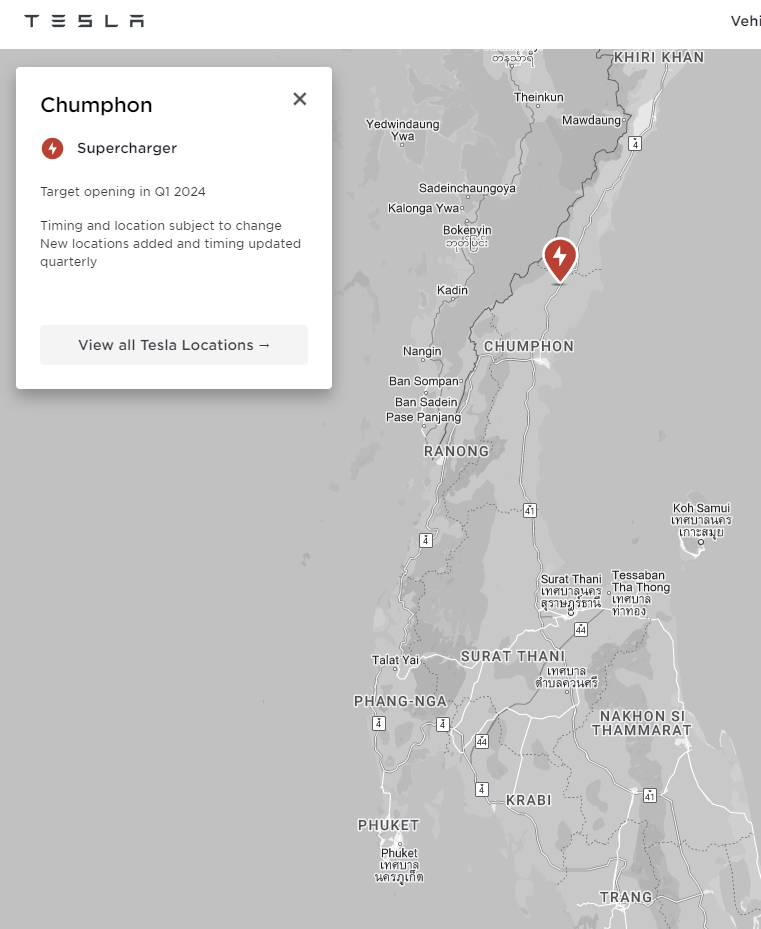
Kudos to the visionary members of the Tesla team in Thailand who championed the initiative to extend the Supercharger network to more practical and accessible locations. Their efforts to align closely with the core principles of Tesla’s mission and to embody Elon Musk’s vision of enabling seamless and enjoyable long-distance travel for electric vehicle owners are truly commendable. This development signals a keen responsiveness to customer needs and a dedicated commitment to enhancing the Tesla ownership experience. By advocating for the freedom to explore without the constraints of charging availability, these team members have played a pivotal role in ensuring that the Supercharger network supports the overarching goal of Tesla: to facilitate the widespread adoption of electric vehicles by making long-distance travel as effortless as possible. Their proactive approach deserves our support and recognition, as it perfectly aligns with the ethos of Tesla Superchargers.
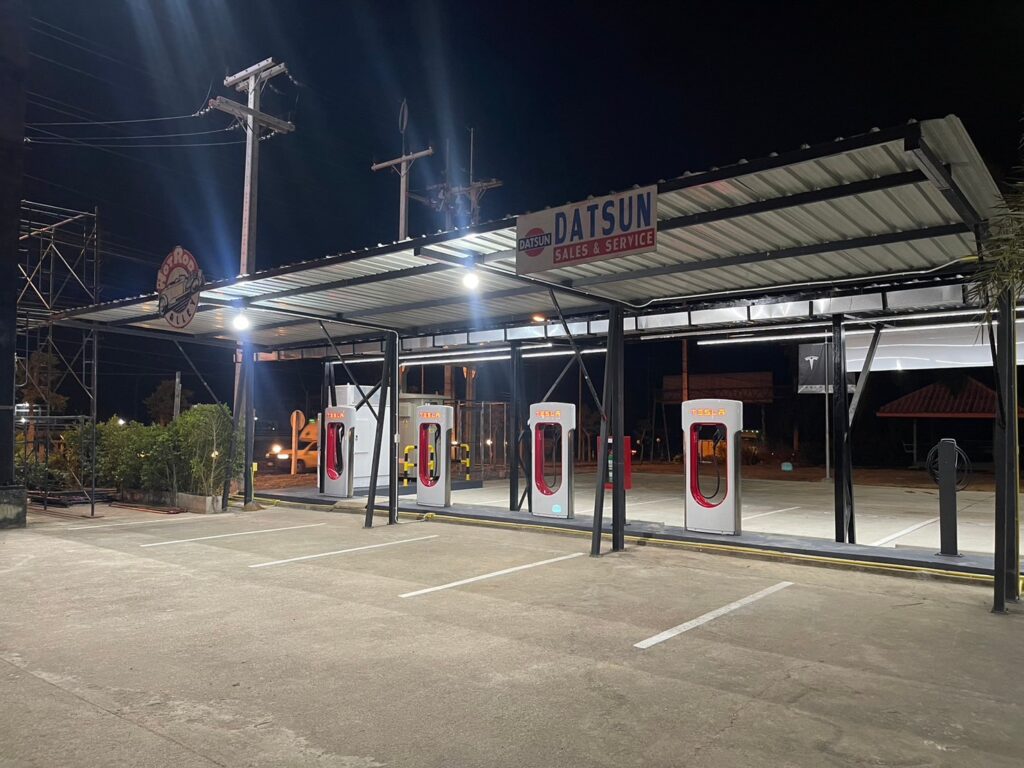
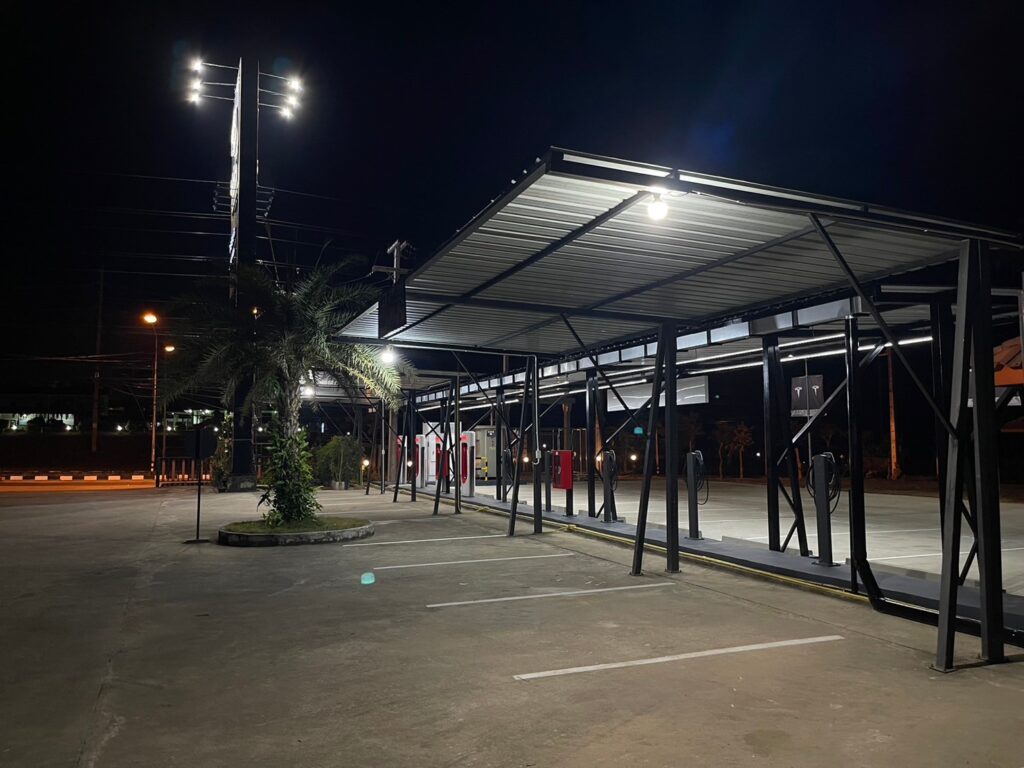
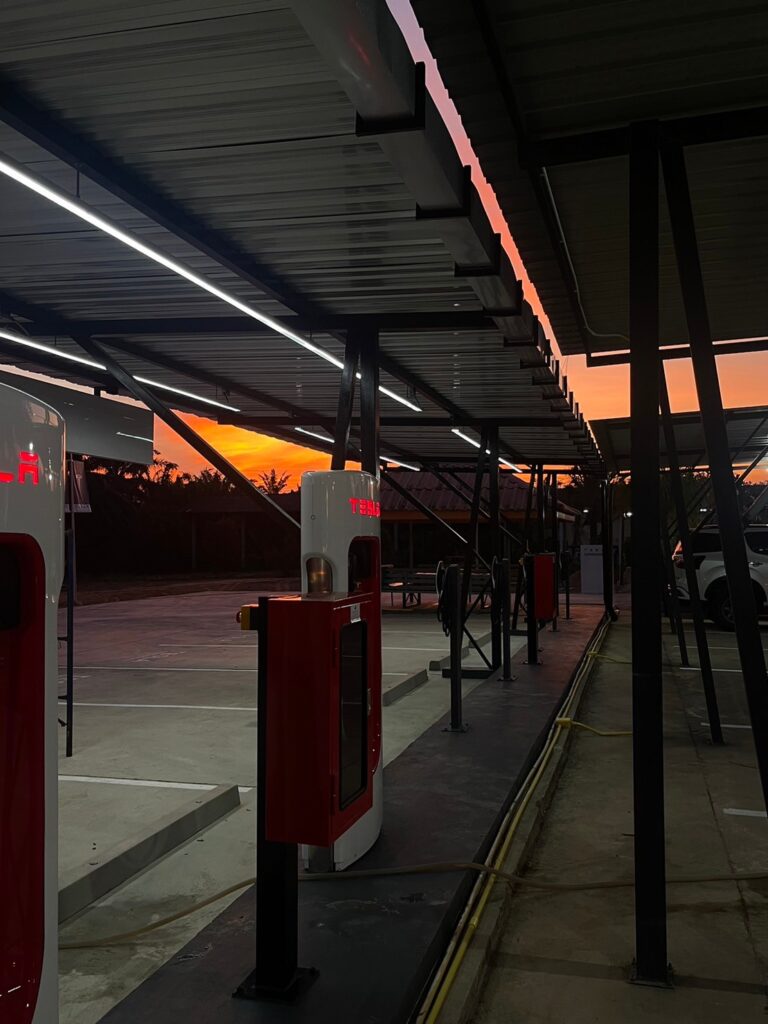
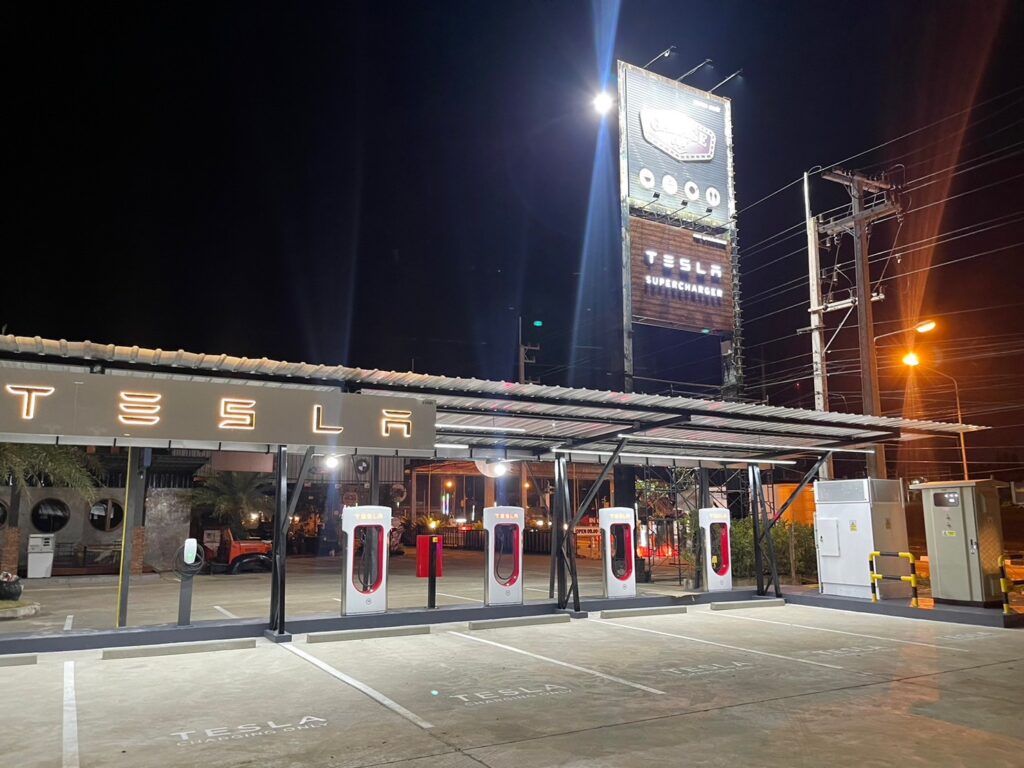
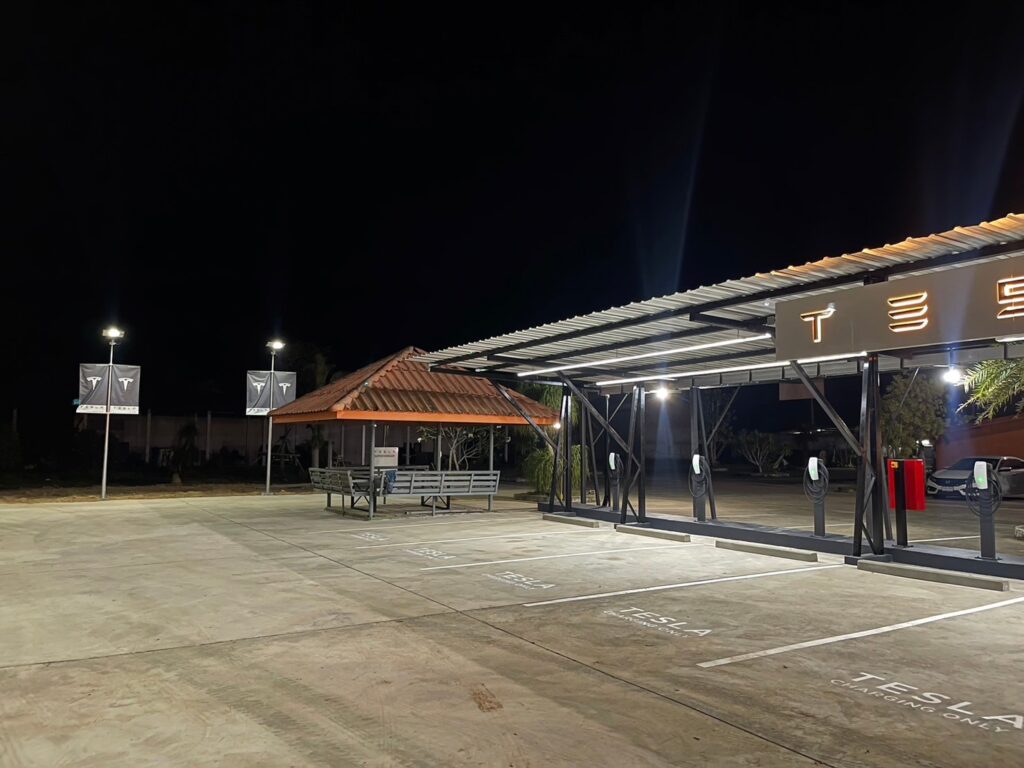
This development, however, does not mark the conclusion of the narrative. Rumors have surfaced suggesting that certain individuals within Tesla hold a strong preference for department store locations and are advocating for the deployment of Superchargers at these sites, despite the potential inconvenience it may pose to Tesla users. This internal divergence of opinion highlights the ongoing debate over the strategic direction of Tesla’s Supercharger network expansion in Thailand, underscoring the complexity of balancing corporate strategy with user convenience and the overarching mission of promoting electric vehicle adoption.

